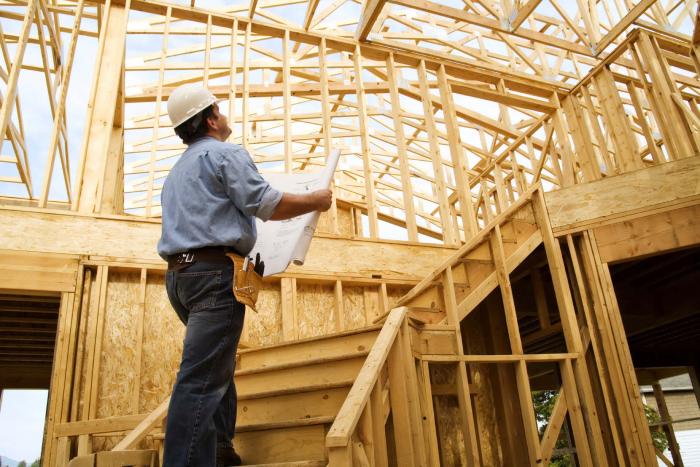
About
Ask Yourself...
- Are you interested in building structure and design?
- Are you familiar with Building Code?
- Can you interpret construction drawings?
- Can you write technical reports?
- Do you enjoy working with a wide range of people?
- Can you successfully deal with conflict?
If the answer to these questions is yes, then a career as a Building Inspector could be right for you.
Building inspectors review the plans for residential, commercial and industrial buildings to ensure the building design complies with national and/or provincial Building Code requirements. They also conduct on-site inspections to ensure that actual building construction is in compliance with Building Code. Normally this work takes place prior to and during new construction or renovation.
Building inspectors are normally employed by federal, provincial and municipal governments, and in some cases, they may be employed by construction companies, architectural firms and civil engineering consulting firms.
Duties
Building inspectors perform some or all of the following duties:
- Examine plans, drawings and site layouts for new buildings, building renovations and other proposed structures to ensure compliance with Building Code
- Inspect construction of buildings to ensure that it complies with Building Code
- Inspect and test electrical or plumbing installations in buildings to ensure compliance with municipal, provincial and federal regulations
- Inspect steel framework, concrete forms, reinforcing steel mesh and rods, concrete or pre-stressed concrete to ensure quality standards and to verify conformance to specifications and building codes
Work Conditions
Building inspectors who review plans normally work in an office, while those who perform building inspections spend a lot of time out on construction sites.
As with all careers in the construction industry, safety is the top priority. While on construction or other job sites, building inspectors must be aware of and comply with all relevant safety policy and procedures.
Training and Certification
The Alliance of Canadian Building Officials’ Associations (ACBOA) is a good source of information on courses and training providers for this occupation. ACBOA also oversees a National Certification Program for building inspectors who meet their certification requirements. For more information visit www.acboa.ca.
- Completion of secondary school is required.
- College diploma in construction, civil engineering or architectural technology plus several years of related work experience, or several years of experience as a qualified tradesperson in a construction trade, such as plumbing, carpentry or electrical trade are required.
- Provincial certification in a skilled trade or as an engineering technologist may be required.
Courses
Wage
 | ||
| Mid range $69,990 |  | High range $110,970 |
The “mid range” wage is based on the national “median” wage reported in the Job Bank career profile for this National Occupational Category (NOC): 2264
Note: Some career profiles may have more than one NOC code associated with them.






